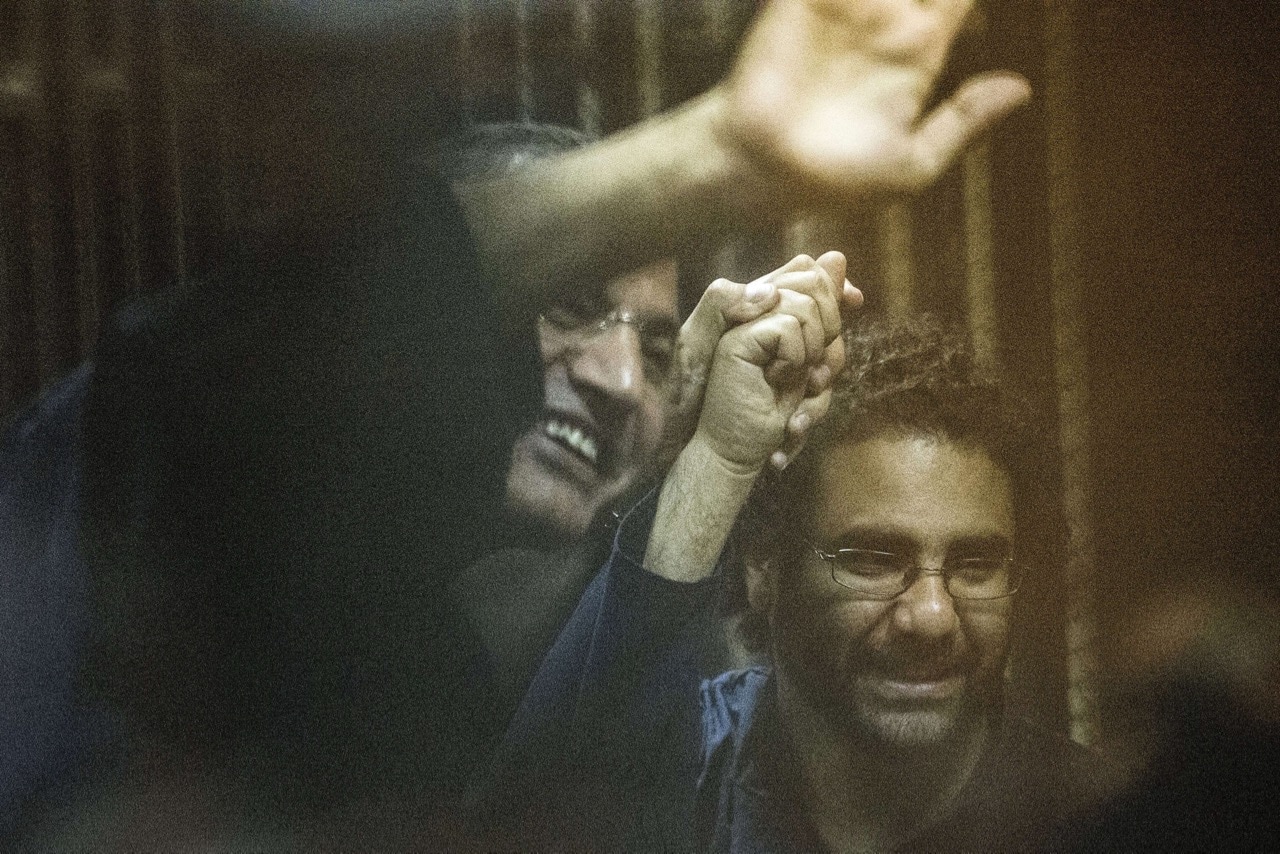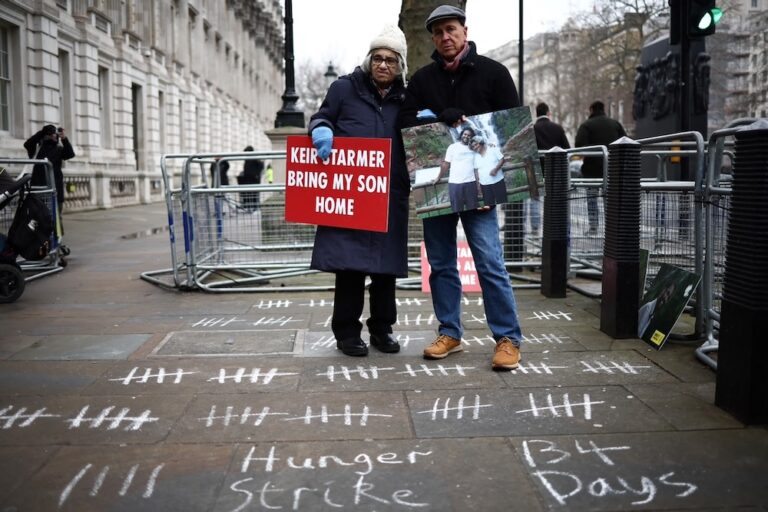Alaa has been imprisoned for protest-related activities since 2013.
This statement was originally published on advox.globalvoices.org on 13 March 2019. It is republished here under Creative Commons license CC-BY 3.0.
Egyptian authorities have delayed the release of prominent blogger and activist Alaa Abd El Fattah by 10 days, his sister, human rights activist Mona Seif said on Twitter.
Abd El Fattah was scheduled to be released from prison on March 17, 2019, the day he completes his five-year sentence in prison.
In late February, the Free Alaa campaign posted an update on Facebook, announcing that the blogger’s scheduled day of release is now March 27, blaming the “usual bureaucracy” at Egyptian institutions. The campaign reassured supporters that the delay is not a cause for concern for now:
The truth is the prison authorities have been giving us mixed dates over the past few months because even they find it hard to calculate exactly how long he has been in prison as he has been in and out of prison many times over the past years. They have finally settled on the 27th of March as the last day in his sentence, so accordingly we are tweaking the counter, and continuing the countdown with you.
Alaa was arrested and taken from his family’s home in November 2013. More than one year later, in February 2015, he was finally tried and sentenced to five years in prison for “organising” a protest under a 2013 protest law that prohibits unauthorised demonstrations. While he did take part in a protest against military trials for civilians on 26 November 2013, Alaa had no role in organising it. His sentence was confirmed by Egypt’s Court of Cassation in November 2017.
He has been jailed or investigated under every Egyptian head of state who has served during his lifetime. In 2006, he was arrested for taking part in a peaceful protest. In 2011, he spent two months in prison, missing the birth of his first child, Khaled. In 2013, he was arrested and detained for 115 days without trial.
Alaa has long worked on technology and political activism projects with his wife, Manal Hassan. He comes from a family of prominent human rights advocates, including human rights lawyer Ahmed Seif El Islam, Alaa’s father, who was jailed multiple times under the regime of Hosni Mubarak. Abd El Fattah’s sisters, Mona and Sanaa Seif, are also human rights defenders who have long campaigned against the military trials of civilians in the country. In 2016, Sanaa served a six-month jail sentence for insulting a public official.
The March release date does not mark the end of Alaa’s time served, but rather a transition to the final phase of his sentence. After his release, Alaa will be made to spend every night in his local police station for an additional five years.



